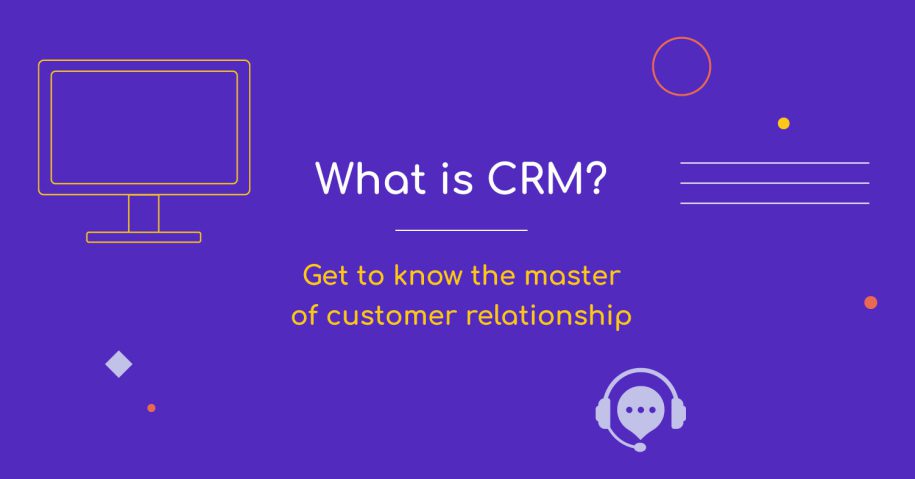What is Customer Relationship Management (CRM) and why is it important for the organization of a modern business? Customer Related Management refers to a strategy used to effectively manage and leverage customer relationships. A CRM system can help maintain long-term customer relationships, improve a business’s communication, increase its productivity, and boost its sales! In short, CRM is a business’s key to creating a unique customer experience! In the following article, we will do a brief historical review of CRM, see exactly what it offers to a business and analyze the solutions offered by Microsoft. Ready to get to know your new friend better?
Ιn this article we will see:
- How did Customer Relationship Management (CRM) get started?
- What features does a CRM system offer?
- Why is Customer Relationship Management (CRM) necessary for a business?
- How can CRM help business teams?
- What solutions does Microsoft offer in CRM?
- Find the CRM solution that suits you and take your business off the ground!
-
How did Customer Relationship Management (CRM) get started?
Although the term Customer Relationship Management (CRM) is relatively modern, the need for customer management is as old as commerce itself! Even in ancient times, there was a method of recording customers, which facilitated merchants in times when selling goods was a very difficult task. But how did modern CRM evolve?
The first steps
Customer Relationship Management (CRM), as we know it today, was started in the 80s by Robert and Kate Kestnbaum, pioneers of database marketing. Database marketing analyzed customer records to extract statistical data about the likelihood of customers interacting with a marketing campaign. Then the business world began to understand the need to create and maintain relationships with customers.
The rise of Customer Relationship Management (CRM)
In 1990, the term CRM was established and focused mainly on increasing sales. A marriage of database marketing and contact management created Sales Force Automation, whose goal was to automate the sales cycle. SFA systems allowed salespeople to manage leads, track opportunities and improve sales forecasting.
The extension to Marketing Automation
In the late 90s and early 2000s, CRM began to incorporate marketing automation systems. This enabled businesses to manage their campaigns, track audience behavior and personalize their efforts based on customer base results.
The transfer to the Cloud
The Cloud has started to spread among businesses as a secure means of data storage. This innovation opened up new perspectives, as it made it easier to manage CRM within an organization by many employees at the same time and from different places!
Mobile CRM
The spread of smartphones led to the development of mobile CRM solutions. Mobile CRM gave easy access to customer records, task management, and enhanced collaboration between employees. Customer management is now a piece of cake!
What features does a CRM system offer?
You have learned what a CRM system is, but do you know the possibilities it offers you? Let’s see them below:
Workflow automation
CRM enables you to automate repetitive tasks such as creating sales offers, sending email campaigns and collecting customer reviews. Thus, you have the possibility to focus on more important tasks.
Sales grouping
Through CRM solutions you can track data about prospective customers and extract useful information to help organize your sales and marketing teams. This way, you will know what stage of the sales cycle each customer is in and which employee has worked on each lead.
Store and manage contacts
With the customer management system, you can store your customers’ information (name, contact info, social media accounts, etc.) in a shared database so that all relevant employees have access.
Customer categorization
With CRM, sales teams can make inferences about which prospects are ready to proceed to sales and which need follow-up. Thus, they are able to focus on more demanding tasks and what has a greater impact.
Systems integration
Did you know you can integrate your CRM with your website, email platforms and billing programs to ensure better management? By connecting the different systems you can automate your processes and take customer service to the next level.
Why is Customer Relationship Management (CRM) necessary for a business?
Improving customer relations
Like a good friend, Customer Relationship Management (CRM) knows everything about your customers! CRM allows the business to better understand the needs and preferences of its customers and improve communication with them. Through personalized offers and personalized service, you offer a unique customer experience, while enhancing your customers’ loyalty!
Sales surge
Customer Relationship Management (CRM) helps manage the sales cycle more efficiently, from new customer acquisition to after-sales support. By analyzing customer data, the business can identify new opportunities, adjust its offers, and effectively promote its products or services.
Increase productivity
Your Customer Relationship Management (CRM) offers you tools that automate and optimize your workflow. This reduces the time and effort required to manage your customers, thereby increasing employee efficiency and productivity, while also reducing your business expenses.
Improving decision making
Customer Relationship Management (CRM) doesn’t just know everything about your customers – it collects detailed information and reports about their activity. With this information, you can later make better-informed decisions, identify new market trends and develop strategies that will increase the competitiveness of your business.
See 10 factors you should consider while choosing the right CRM system for your business needs!
How can CRM help business teams?
Marketing teams
With the ability to create marketing campaigns across multiple communication channels, prepare leads for purchases with targeted experiences, and coordinate your teams with real-time planning and tracking tools, you can develop strategies that will effectively engage your audience.
As you gather insights into your brand reputation through custom analytics tools, you can prioritize the most important leads and quickly adjust using insights and targeted business decisions.
Sales teams
Your salespeople get the tools they need to work better with customers and gain more deals. As your business grows, it will be easier to find the right leads and implement targeted sales strategies, leading to a successful plan for next steps.
By creating a smart sales strategy with actionable insights, you can improve relationships and productivity, accelerate sales and innovate with a modern and flexible platform. Using artificial intelligence to measure performance indicators, you can track the customer relationship from start to finish and automate sales with messages that offer a personalized experience, whenever needed.
Customer service teams
With a CRM system, your reps have the tools they need (like customer support bots) to better engage with customers and understand their needs. By providing personalized service and leveraging data such as customer feedback and surveys, your reps now have the ability to drive higher sales and optimize their resources.
Finally, with “smart” multi-channel service, customers can communicate directly and efficiently with representatives and improve their interaction experience with the brand.
Field service teams
By implementing the Internet of Things (IoT) in your operations, you can diagnose problems faster, streamline work orders and coordinate technician assignments with just a few clicks. By simplifying scheduling and inventory management, you can improve field service efficiency, offering a more personalized experience and reducing costs.
Additionally, through transparent communications that include real-time technician location tracking, appointment reminders, offers, contracts and scheduling information, your customers stay connected to your field representatives and build a relationship of trust with your business.
What solutions does Microsoft offer in CRM?
Microsoft, depending on the scope and needs of your business, offers specialized CRM solutions to effectively manage your customers. Microsoft provides a comprehensive suite of CRM management solutions known as Microsoft Dynamics 365 Customer Engagement. This suite includes the following main products:
Dynamics 365 Sales
This solution aims to improve sales processes by providing tools to capture and analyze customer information, forecast sales, automate sales tasks, and facilitate collaboration between salespeople.
Dynamics 365 Customer Service
This solution focuses on improving customer service by providing tools to manage customer requests and issues, automate service, provide customized support options, and generate detailed reports.
Dynamics 365 Marketing
This solution is aimed at marketing professionals and provides tools for creating, executing and evaluating Campaigns, managing clients, and analyzing Campaign results.
Dynamics 365 Field Service
This solution allows companies to manage and coordinate the services they offer to their customers in locations outside of their offices. This includes scheduled maintenance or repair of equipment, dispatch of technical teams, warehouse management, etc.
Dynamics 365 Customer Voice
It is a solution that helps create custom questionnaires or customer satisfaction surveys to extract data about audience preferences. Through these analyses, the company can take measures to improve the customer experience.
Find the CRM solution that suits you and take your business off the ground!
At NUS Solutions, we specialize in Customer Relationship Management (CRM). With many years of experience and expertise in the leading Dynamics 365 platform, we offer custom-made solutions for every business! Explore our solutions designed for specific businesses or contact us to design the solution that will unlock your business potential and boost sales! Entrust the digital transformation of your business to the experts and provide a unique customer experience to your customers! Together, we will make your vision a reality!





…